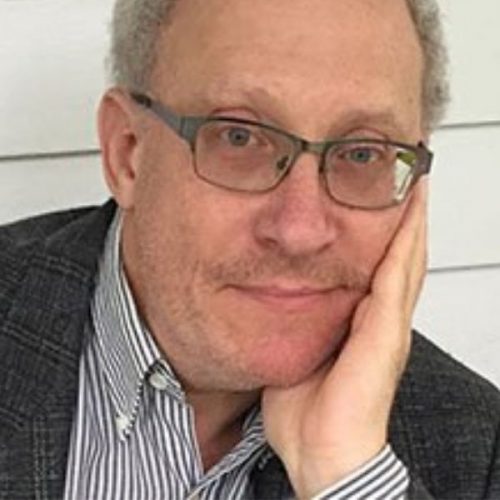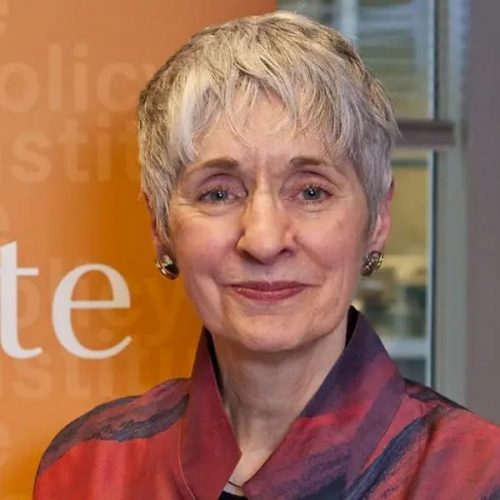
Peter Arno

Tom Bethell

John Cutler

Joan Entmacher

Sarah Jane Glynn

Thomas Hungerford

Howard Iams

Sara E. Rix, Ph.D.

Bob Rosenblatt

Pat Vinkenes

Stephen A. Wandner

Mikki Waid
Peter Arno
Peter Arno is a Senior Fellow at the Academy. An economist, Senior Fellow and Director of Health Policy Research at the Political Economy Research Institute at the University of Massachusetts-Amherst, Arno also serves on the Board of Directors of the National Committee to Preserve Social Security & Medicare Foundation. He was the founding director of the Center for Long Term Care Research & Policy and the doctoral program in health policy at New York Medical College (2007-2013) and director of the Division of Public Health and Policy Research in the Department of Epidemiology and Population Health at Albert Einstein College of Medicine and Montefiore Medical Center (1988-2007). He received his doctorate in economics at the New School for Social Research. Arno’s recent work includes studies on the impact of Social Security and the Earned Income Tax Credit on population health, food insecurity and the elderly; economics of long-term care; social and geographic determinants of obesity; and regulation and pricing practices of the pharmaceutical industry. His 1992 book, Against the Odds: The Story of AIDS Drug Development, Politics & Profits, was nominated for a Pulitzer Prize.
Tom Bethell
Tom Bethell is a Senior Fellow at the Academy, consulting primarily with the Income Security team. An independent writer-editor, he worked closely for many years with the late Bob Ball, the Academy’s co-founder. He edited The Greenspan Commission: What Really Happened (2010), Mr. Ball’s account of serving on the National Commission on Social Security Reform; edited Insuring the Essentials (2000), Mr. Ball’s collection of articles and speeches spanning seven decades of service to social insurance; co-authored Straight Talk about Social Security (1998); and co-authored Because We’re All in This Together: The Case for a National Long Term Care Insurance Policy (1989). He has contributed to many publications including The Washington Monthly and The American Scholar. He is a founding board member of the Institute for Rural Journalism, based at the University of Kentucky; a contributing editor for The Mountain Eagle (Whitesburg, KY); and a former research director of the United Mine Workers of America. At the Academy he is involved in the planning and production of issue briefs, fact sheets, reports, and other informational materials.
Email:tombethell@gmail.com
John Cutler
John Cutler has, over the last 25 years, developed and applied unique expertise in the areas of health care, Medicare, long term care insurance, disability, aging, and insurance benefit design in both the public and private sectors. Since his retirement from the federal government he has maintained a consulting business and he is currently a special advisor to the Women’s Institute for a Secure Retirement (WISER) and is active in several Society of Actuary committees. In 2014, he was of the award winners for his paper for the SOA’s monograph series on “Managing the Impact of Long Term Care Needs and Expense on Retirement Security”. Until July 2015, he served in the new National Healthcare Operations health care reform office of the U.S. Office of Personnel Management (OPM). Prior to that he was a Senior Policy Analyst at OPM and was the architect and Project Leader for the Federal Long Term Care Insurance Program. He was responsible for assisting with the re-authorization of the Older Americans Act and Long Term Care Awareness Campaign sponsored by the U.S. Department of Health and Human Services (HHS) and was involved in the development of the National Clearinghouse for Long-Term Care Information. Cutler joined the federal government in 1997 as a Health Policy Analyst in the Office of the Assistant Secretary for Planning and Evaluation (ASPE) at HHS. His responsibilities for policy and research included long term care financing and insurance, Medicare, Medicaid, aging, and disability issues. Prior to that he worked for 8 years at AARP, with responsibility for regulatory and compliance matters involving AARP’s long term care and Medigap insurance as well as other products. Prior to that he was a partner in MacMeekin, Cutler & Woodworth, a small law firm in Washington, DC dedicated to Pacific and territorial legal matters. Cutler holds a BA degree from the University of Virginia in Government and Foreign Affairs and a Juris Doctor from the University of Georgia. He is a member of the Bar in the District of Columbia. Cutler has been an Academy member since 1996.
Joan Entmacher
Joan Entmacher is a Senior Fellow at the National Academy of Social Insurance. Until January 2016, she was Vice President for Family Economic Security at the National Women’s Law Center, a nonprofit organization that has been working since 1972 to advance and protect women’s rights and opportunities. She directed NWLC’s program to improve policies affecting the economic security of low-income women and their families, including Social Security, tax and budget, child care, and other income support programs, through public education, research, advocacy, and litigation. Entmacher is a leading expert on Social Security and women. She has been invited to testify before Congress on several occasions; written numerous analyses of Social Security issues; developed original proposals for improving Social Security benefits; served on the expert study panel convened by the Academy to develop its report, Uncharted Waters: Paying Benefits from Individual Accounts in Federal Retirement Policy; and commented on Social Security issues for the media and at numerous conferences. Previously, Entmacher worked at the National Partnership for Women & Families, taught political science at Wellesley College, headed the Civil Rights Division of the Massachusetts Attorney General’s Office, and litigated cases in the U.S. Department of Labor Solicitor’s Office. Entmacher is a graduate of Wellesley College and Yale Law School. Entmacher has been an Academy member since 2005.
Sarah Jane Glynn
Sarah Jane Glynn, is a Senior Fellow at the National Academy of Social Insurance and a free-lance consultant and researcher. She is the former Director of Women’s Economic Policy at the Center for American Progress, and is a nationally recognized expert on family economic security and paid family and medical leave. Glynn has researched and written extensively on state paid leave programs and their administration, and has authored reports for state and county governments outlining detailed policy and implementation plans for paid leave social insurance programs. She has been asked to testify before state and local governments on paid family leave, and has consulted with members of Congress and political candidates on paid family leave social insurance proposals. Glynn received her bachelor’s degree in Women’s Studies from UCLA and her doctorate in Sociology from Vanderbilt University.
Thomas Hungerford
Thomas Hungerford was the Associate Commissioner for Retirement Policy at the Social Security Administration in the Obama Administration. Prior to joining SSA, Hungerford worked at the General Accounting Office, the Office of Management and Budget, SSA, the Congressional Research Service, and the Economic Policy Institute. He has published research articles in journals such as the Review of Economics and Statistics, Journal of Human Resources, Journal of Urban Economics, Review of Income and Wealth, Journal of Policy Analysis and Management, Challenge, and Tax Notes. He has taught economics at Wayne State University, American University, and Johns Hopkins University. He has a Ph.D. in Economics from the University of Michigan.
Howard Iams
Howard Iams is a Senior Fellow at the National Academy of Social Insurance. He spent the past 40 years working at the Social Security Administration, primarily in the Office of Research Evaluation and Statistics. His research focused on the retirement process, the economic well-being of the aged, pension participation, and Social Security benefits of women. He also focused on projecting these characteristics for future beneficiaries in the Baby Boom and Generation-X birth cohorts. He has written extensively on these subjects while at the Social Security Administration. Since 1986, he conducted policy evaluations on retirement with survey data from the Census Bureau’s Survey of Income and Program Participation (SIPP) matched to SSA administrative records of earnings and benefits. In the late 1990s, he and a colleague designed the Modeling Income in the Near Term (MINT) micro-simulation data with SIPP data matched to SSA administrative records on earnings, benefits, and death. He continued updating MINT over the next 20 years. His positions at the Social Security Administration included survey statistician, social science research analyst, senior research advisor, Director of the Division of Policy Evaluation, and Acting Director of the Office of Policy Evaluation. He is a member of the American Sociological Association, The Gerontology Society of America, The Population Association of America, and the Post-Retirement Needs and Risks Committee of the Society of Actuaries. He is on the editorial board of the Journal of Retirement and served as Treasurer of The District of Columbia Sociological Society. He earned an A.B. at Indiana University and an A.M. and Ph.D. at the University of Michigan in sociology. He volunteers as an information specialist at the Smithsonian National Museum of American History and plays trombone in the Rockville Concert Band.
Sara E. Rix, Ph.D.
Sara E. Rix, Ph.D., is a Senior Fellow at the National Academy of Social Insurance. She spent the last 25 years of her career on the Economics Team of the Public Policy Institute at AARP. Her research focused on examining the role of public policy in enhancing the well-being of older Americans. She has written and spoken extensively on the economics of aging, an aging society, and older worker employment for nearly four decades. Before moving to AARP, she was director of research for the Women’s Research and Education Institute. Rix has been involved in numerous national and international activities studying the problems of, and prospects for, an aging world and developing strategies to address some of the challenges of aging societies. For many years, she was a lecturer in the Economic and Financial Aspects of Aging training program of the UN International Institute on Ageing in Malta. She serves on the steering committee of the Sloan Research Network on Aging and Work and is a member of the Post-Retirement Needs and Risks Committee of the Society of Actuaries. Rix also serves on the editorial boards of Work, Aging, and Retirement; The Gerontologist; Public Policy & Aging Report; The Journal of Retirement, and The Journal of Aging & Social Policy. She has been a blogger for The Huffington Post and an issue expert often quoted in The New York Times, The Washington Post, USA Today, and other national and regional publications. A fellow of the Royal Society for the Encouragement of Arts and the Gerontological Society of America, she remains active as a consultant and advisor on employment matters. She has been a member of the Academy since 2004. In her spare time, she volunteers as a primate interpreter at the Smithsonian Institution’s National Zoological Park.
Email:serix@gmail.com
Bob Rosenblatt
Bob Rosenblatt is a senior fellow at the Academy and a free-lance writer and editor. He prepared the reporter’s sourcebook on social insurance for the “Learn” section of the the Academy website. He is the editor of a HelpwithAging.com, a website for baby boomers and their parents, giving them tips to manage the intricacies of Medicare, Social Security, and finding a good assisted living apartment. Mr. Rosenblatt writes weekly postings on long-term services and supports for The SCAN Foundation’s website “Research and Policy Library. ” He also writes a column on health policy issues for the website of the California HealthCare Foundation. Rosenblatt was a Washington correspondent for the Los Angeles Times from 1975-2002. He covered economic and financial stories, health policy, and created the paper’s beat dealing with aging and retirement issues. He also wrote a column, “Health Dollars and Sense,” for the newspaper’s health section, dealing with insurance, Medicare, Medicaid, nursing homes and other issues. He was the principal author of the first reporter’s guidebook to health care issues, prepared for the Alliance for Health Reform. He was co-chair of the Editorial Board of “Aging Today,” the publication of the American Society on Aging and writes a column, “Potomac Sources.” Rosenblatt has a BA in economics from the City College of New York and an MA in journalism from the Columbia University Graduate School of Journalism. He has been a member of the Academy since 2002.
Email:brosenblatt@nasi.org
Pat Vinkenes
Pat Vinkenes is a senior fellow at the Academy. Until April 2017, she was a senior budget examiner at the Office of Management and Budget specializing in Social Security solvency and refundable tax credits. She also staffed the Obama Administration on debt ceiling & budget negotiations. Prior to OMB, she served as the Staff Director of the Office of Retirement Policy at the Social Security Administration specializing in the distributional analysis of Social Security solvency proposals including the Bush privatization effort and Clinton USA Accounts. Pat also spent 16 years in the House of Representatives, served as associate staff of both the Budget and Ways and Means Committees, and as legislative director to then Representative Barbara Kennelly, Ranking Member of the Social Security Subcommittee. She worked to expand the EITC in the budget deals of 1990 and 1993. Her expertise includes chained CPI, old age enhancements, minimum benefits, widow, divorce and other benefit enhancements as well as refundable tax credits. Pat has an undergraduate degree in Political Science from the University of Connecticut and an MA in tax policy from George Washington University.
Stephen A. Wandner
Stephen A. Wandner , Ph.D., is a Senior Fellow at the National Academy of Social Insurance and a Visiting Fellow at the Urban Institute. He was formerly a Research Fellow at the W.E. Upjohn Institute for Employment Research. He worked for the U.S. Department of Labor for many years in a variety of roles. At the Unemployment Insurance Service, he was an Actuary, Director of Benefit Financing, and Deputy Director of the Office of Legislation, Research and Actuarial Services. For the Employment and Training Administration he was the Director of Research and Demonstrations and Director of Strategic Planning. Throughout his career, he conducted policy and economic analysis, conducted and directed research and evaluations, and designed and implemented public workforce programs. He directed a series of 11 random assignment reemployment experiments, two of which were the basis for new federal employment programs for which he directed their design and implementation. He has published over 30 articles on a wide variety of workforce issues. He co-edited and wrote chapters for three books dealing with unemployment insurance, targeting employment services and job training. He is currently editing or co-editing three books on unemployment insurance reform, the interaction of unemployment insurance and SNAP during the Great Recession, and lessons learned from a series of workforce experiments. In 2011, the Princeton Industrial Relations Section awarded him the Richard A. Lester Prize for the Outstanding Book in Labor Economics and Industrial Relations for his book, Solving the Reemployment Puzzle: From Research to Policy—a book that analyzed the research, evaluation, and policy development of public workforce interventions. He received the 2011 Outstanding Practitioner Award from the Labor and Employment Relations Association for contributions to research and practice in the field of employment relations. His recent research has evaluated the Transition Assistance Program and job clubs, analyzed public workforce programs during and after the Great Recession, assessed public workforce programs for older workers, conducted an implementation analysis of workforce programs funded by the American Recovery and Reinvestment Act, evaluated the short-time compensation program, conducted a longitudinal survey of the unemployment insurance program, and analyzed education and training scorecards.
Mikki Waid
Mikki Waid is a senior fellow at the Academy. Waid previously served as a Senior Advisor at AARP, where she educated fellow AARP employees, AARP members, the AARP board, and the public about the Social Security program and policy alternatives. While previously working for both the Social Security Administration and the Congressional Research Service, Waid co-wrote computer programs that calculated Social Security benefits under current law and policy alternatives. In addition to analyzing the distributional effects of Social Security solvency proposals, she has studied the redistribution of Social Security benefits, the labor force participation of married women, the retirement wealth of Baby Boomers, and the differences in wealth accumulation by race. Waid also has an expert-level understanding of Social Security rules and regulations. Most recently, she served as a technical advisor for the Social Security for Dummies book written by AARP’s Jonathan Peterson. She serves as a Social Security expert for AARP’s events such as AARP tele-town halls, webinars, and training for AARP’s “You’ve Earned A Say” discussions. A National Academy of Social Insurance member since 2012, Waid received her Ph.D. in Economics from The George Washington University.
Senior Fellows At-A-Glance
Peter Arno
Tom Bethell
John Cutler
Joan Entmacher
Sarah Jane Glynn
Thomas Hungerford
Howard Iams
Pamela J. Larson
Sara E. Rix, Ph.D.
Bob Rosenblatt
Pat Vinkenes
Stephen A. Wandner
Mikki Waid
